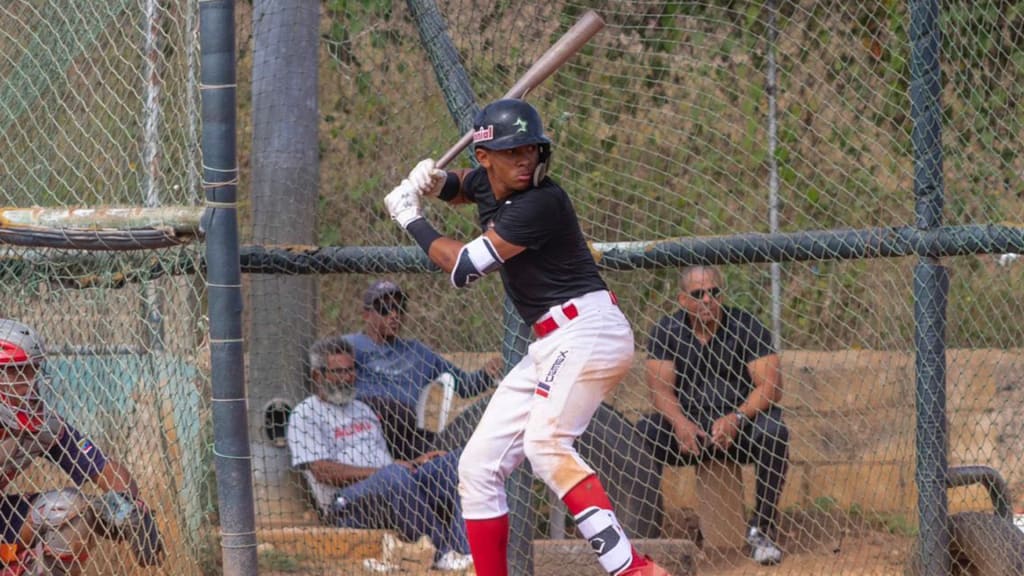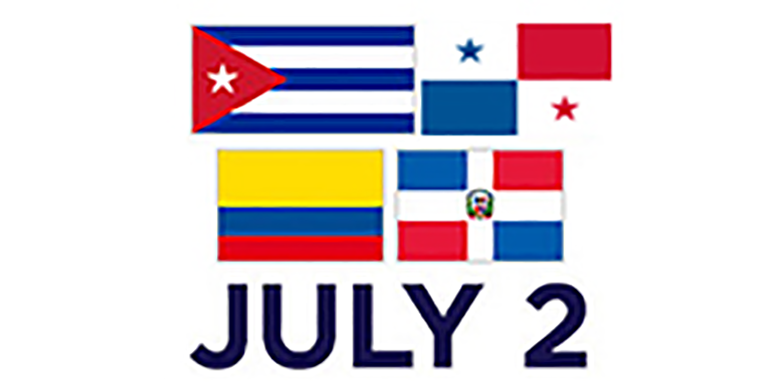
The White Sox are officially adding a familiar last name to their farm system.
The White Sox have agreed to a deal with Elijah Tatis, the son of former Major Leaguer Fernando Tatis and the brother of Padres shortstop Fernando Tatis Jr., for a deal worth $400,000, according to industry sources.
The White Sox are also the front-runners to sign third baseman Wilfred Veras, the son of former Major Leaguer Wilton Veras. Wilfred¡¯s mother is Fernando Tatis Sr.¡¯s sister. Additionally, the club is expected to sign Cuban infielder Yolbert Sanchez, who became eligible to sign during the 2018-19 period, for $2,500,000.
The club has not confirmed the deals.
As for Elijah Tatis, he is known for his strong and accurate arm, and he has impressed scouts with the way the ball jumps off his bat, as well as his ability to square up fastballs. Tatis Jr. was originally a member of the White Sox farm system as well, signing with the club in 2015 before being sent to the Padres alongside right-hander Erik Johnson in a '16 trade for righty James Shields.
Veras has tons of raw power and has been compared to a young Edwin Encarnacion.
Sanchez was the starting shortstop for the Havana Industriales and is projected to be the starting shortstop for the island's national team before his defection. The 22-year-old was the starting shortstop for Cuba's 23U team in Panama and was a teammate of White Sox top prospect Luis Robert on the country's 18U team.
According to the rules established by the Collective Bargaining Agreement, clubs that receive a Competitive Balance Pick in Round B of the Rule 4 Draft receive a pool of $6,481,200 for spending on international prospects, while clubs that receive a Competitive Balance Pick in Round A of the Rule 4 Draft receive $5,939,800.
The White Sox have bonus pools of $5,398,300.
Teams are allowed to trade as much of their international pool money as they would like, but it can only acquire 60 percent of another team's initial pool amount. Additionally, signing bonuses of $10,000 or less do not count toward a club's bonus pool, and foreign professional players who are at least 25 years of age and have played in a foreign league for at least six seasons are also exempt.
Under the previous system, teams were penalized for exceeding their bonus pools with consequences that ranged from taxes on their spending to the maximum penalty, which was being prohibited from signing any prospect for more than $300,000 during the next two signing periods. That¡¯s no longer the case and there are no longer penalties. Teams can only spend their allotted bonus pools and the monies acquired via trade.

